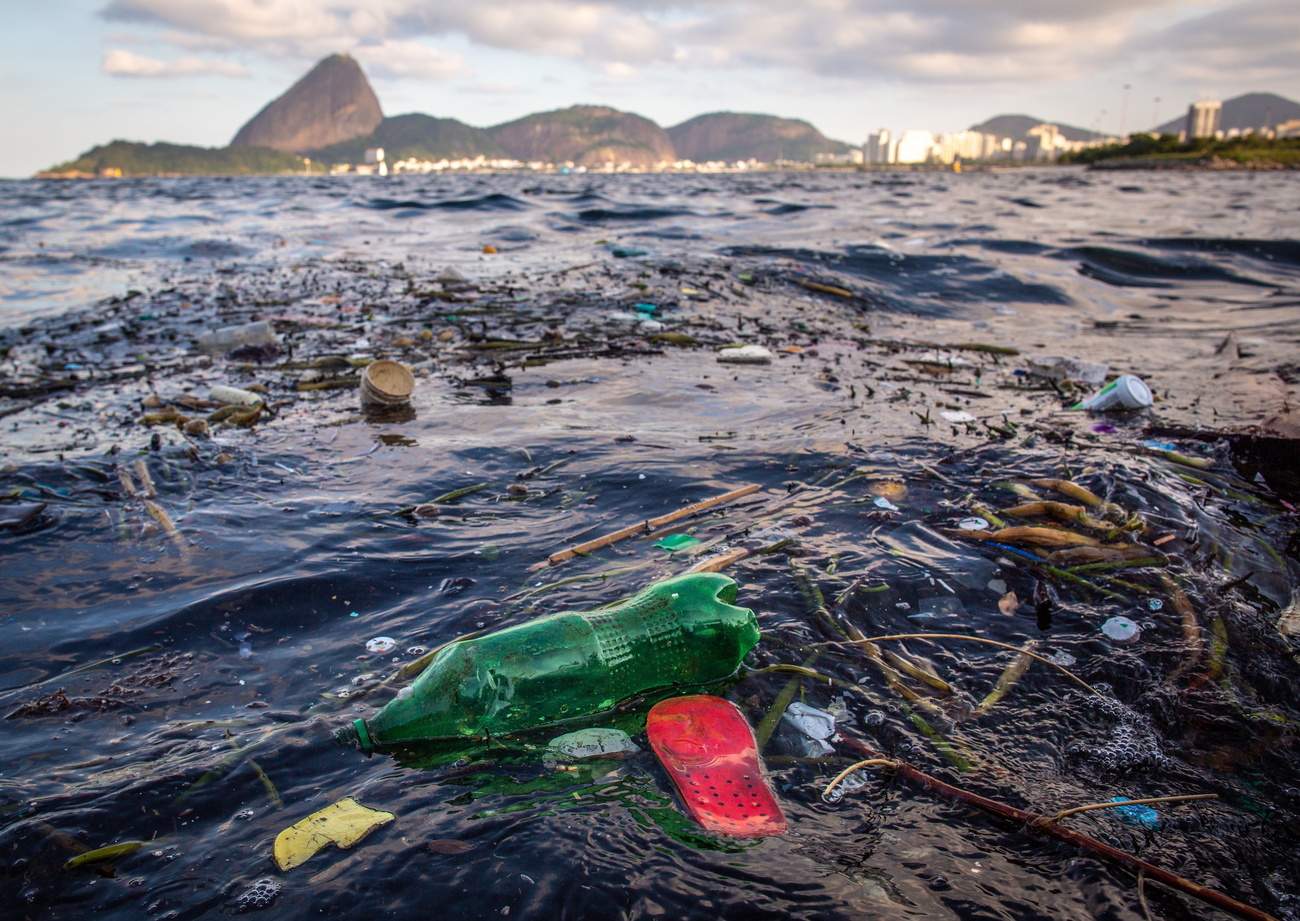Big banks continue to pump money into coal projects

Financial institutions, including Swiss banks, are channelling billions of dollars into the coal industry despite net-zero climate targets.
Since 2019, Swiss banks have lent or helped raise $19.8 billion (CHF18.3 billion) for companies involved in the coal industry, according to a reportExternal link published on Tuesday by a group of 28 environmental organisations.
Globally, financial institutions channelled $1.5 trillion to the coal industry between January 2019 and November 2021, with those from Britain, the United States, China, Japan, India and Canada responsible for more than 86% of coal financing and investment, says the NGO report.
Coal is the most polluting fossil fuel and phasing it out is a key part of global efforts to slash climate-heating pollution and meet international goals.
To make their calculationExternal link, the NGOs Urgewald, Reclaim Finance, 350.org Japan and 25 other partners counted different types of financing (loans, equity issues and bonds) granted by financial organisations between January 2019 and November 2021 to companies on the Global Coal Exit List (GCEL). This is a database of the 1,032 companies involved with the mining, trading, transport and utilisation of coal, compiled by Urgewald.
Swiss funding
Among Swiss financial institutions, Credit Suisse lent or helped raise $13.5 billion during this period. It was followed by UBS ($5.2 billion), Habib Bank ($586 million) and Zurich Cantonal Bank ($255 million).
At the end of 2021, Swiss banks held over $22 billion in stocks and corporate bonds listed on the GCEL. UBS topped the list with CHF7.6 billion in assets, followed by the Pictet Group (CHF6.1 billion), Credit Suisse (CHF2.6 billion), the Swiss National Bank (CHF2.5 billion) and Zurich Cantonal Bank (CHF600 million).
In a statement sent to the Keystone-SDA News Agency, UBS said it applied “strict” sustainability and climate risk standards to all its business transactions. It encourages companies to align themselves with the Paris climate agreement, it added.
The Swiss National Bank told Keystone-SDA that since December 2020 it had excluded from its investments any shares of companies that are mainly active in coal extraction. Meanwhile, Credit Suisse says it is aiming at net-zero emissions for its operations, supply chain and financing activities by 2050, with interim targets by 2030.
Globally, 376 banks lent $363 billion to companies active in the coal sector, but 12 banks are responsible for 48% of the loans, note Urgewald and its partners.
The NGOs also point the finger at the investors who buy securities issued by the banks. As of November 2021, some 4,900 institutional investors held $1.2 trillion related to the coal industry, with the top 24 investors holding 46% of that sum.

More
Switzerland grapples with challenge of greening its banks
COP and beyond
At last November’s Glasgow climate talks COP26, more than 40 countries pledged to ditch coal useExternal link, although major consumers such as China, India and the United States did not sign up.
Environmentalists have long criticised the Swiss National Bank (SNB) and financial institutions for investing enormous sums in fossil fuel companies and thereby contributing to global warming.
A flurry of new initiatives emerged in the wake of the COP26 climate summit. But banks, the government and regulators face a sizeable task in turning Switzerland into a sustainable finance hub.
Last year, a top SNB official declared that the SNB’s mission was not to make the world greener but to meet monetary policy goals.
More

In compliance with the JTI standards
More: SWI swissinfo.ch certified by the Journalism Trust Initiative























You can find an overview of ongoing debates with our journalists here . Please join us!
If you want to start a conversation about a topic raised in this article or want to report factual errors, email us at english@swissinfo.ch.